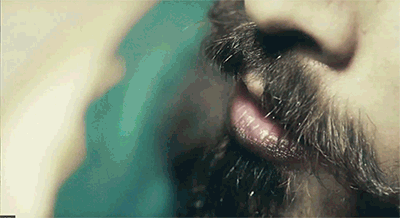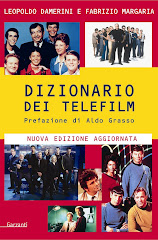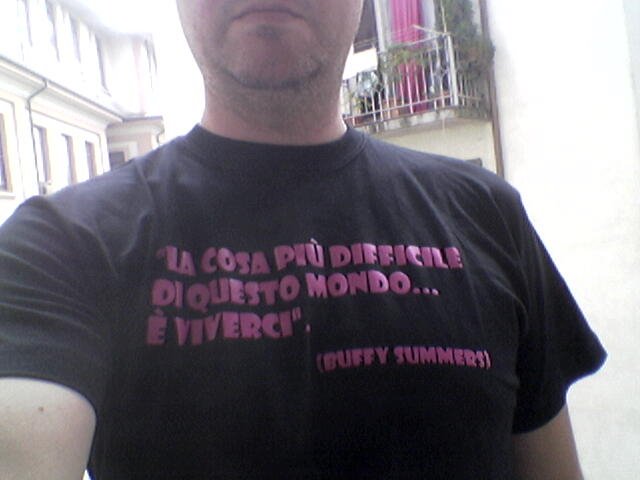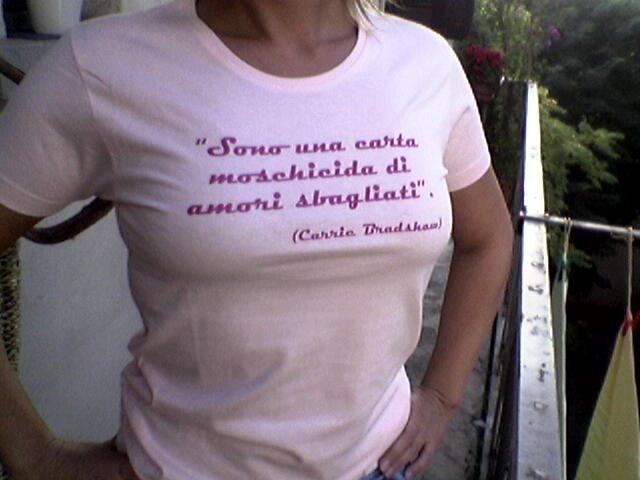In occasione della trasmissione degli episodi inediti di "Gotham", dal 11 maggio su Premium Action (ogni lunedì in prima serata), Telefilm Cult ha intervistato in esclusiva Donal Logue, interprete del detective Harvey Bullock.
How does it feel to be part of the DC Universe?
For me, it’s massive. To get a thumbprint
on a world that’s very important to a lot of people is huge. Prior to Gotham, my only experience of Harvey
Bullock was in Batman: The Animated Series.
My kids would watch that show as we drove up to our house in Oregon, so I was
familiar with that version of the character – but I wanted to make it my own. It’s
exciting to take your place on the shelf among all the other people who have
had a play in this world. It’s really exciting.
What’s
the atmosphere like on the set of Gotham?
It’s fantastic. Right now, we’re in the
middle of production, so we’re finding the rhythms and strides of the show.
Every episode has been a blast. So far, I feel like it’s a really, really strong
series.
Has
the show been strong since the very first episode?
It’s interesting because if you watch the
pilot for a series – for example, The
Sopranos – it takes a while to find a rhythm for a show. I think we found a
rhythm pretty quickly. To be honest, we always thought the pilot was strong.
 Most
people know about Batman and Gotham City, but how difficult is it to describe
the show without giving away any spoilers?
Most
people know about Batman and Gotham City, but how difficult is it to describe
the show without giving away any spoilers?
I’ve never been on a show before where you didn’t
have to pitch the idea to the audience. When you work on something like [Donal’s
previous television show] Terriers,
where the title isn’t really implicit of what the show is about, you have to
generate all of that information and you pitch it in interviews. You don’t have
to pitch Gotham. It’s in the
nomenclature.
What
attracted you to the show?
For me, I was always drawn by it – but not because
I’m necessarily into fantasy and the super hero aspect of the show; I’ve always
liked it because it has a Raymond Chandler and James Ellroy quality to it. I
always like the noir-ish part of American society, the American urban underbelly.
It feels like Gotham can be used as a
descriptive term for the seedier side of any big metropolitan centre. That’s
what drew me to the show, and that’s what we’re playing up with the show. It
feels a bit like the movie Chinatown.
It feels like my character is Jake Gittes in that movie. Jim Gordon comes along
and he’s really idealistic, but he’s partnered with Harvey Bullock, a guy who’s
been through it all. Maybe he’s got one bit of goodness left in him, though. It
takes a guy like Jim Gordon to bring that back out in Harvey Bullock.
You’ve
played a lot of tough characters on a variety of shows including Vikings and Sons Of Anarchy. Are
you looking forward to being the tough guy again in Gotham?
Yes, I am. Lee Toric in Sons Of Anarchy was probably a little
tougher than Harvey Bullock in Gotham –
but it’s great. It’s interesting because a television critic explained that our
new show is really violent and not for young fans. I replied, “Violent?
Compared to what? Vikings and Sons Of Anarchy? Come on!” To be honest,
my kids watched The Lord Of The Rings when
they were two years old and they loved it.
How
would you describe Harvey Bullock?
Harvey is an old school detective who’s
been around the block a lot. He’s a legend. I think he’s well liked among the police
department because he’ll defend the blue line. I wouldn’t say that he’s
unethical; I just say that he’s the willow and not the oak. He’s pragmatic. Just
like with police work in general, sometimes you have to cut a scumbag a break
to be a confidential informant to get bigger bad people. He’s actually crossed
that line a bit. He actually has relationships with people in the criminal
underworld, but he’s trying to survive – and maybe he’s trying to get to his
pension. When a guy like Jim Gordon shows up and starts saying, “No, there’s a
right and there’s a wrong.” Harvey thinks, ‘Good luck!’ However, Jim Gordon wakes
something up inside of Harvey Bullock. I think it maybe makes Harvey want to be
the cop that he once was.
Will
the show delve into the back-story of Harvey Bullock?
Absolutely. In fact, I just found out some
little tidbits about his back-story. We’re getting to that pretty soon in the
show, which is exciting.
How
much did you know about the back-story of Harvey when you signed up for the
role?
I had a good long talk with [Gotham creator] Bruno Heller about the
character when we first met. Bruno is brilliant. I can’t articulate the show
the way that he can, but he made it so plain and clear to me. Sometimes you
don’t have to try that hard to work out a character. When you have to work
really hard to try and figure out a character, it’s not always necessarily the
best thing. Harvey Bullock was a much easier cloak to put on than Donovan in Copper or King Horik in Vikings. It felt pretty easy and it felt
like it made sense.
Vikings, Copper and Gotham are three very specific and different time periods. Are you
suffering from whiplash from all these different characters and ideas?
No. As an actor, you get used to change. When
you’re doing summer repertoire theatre and you have a Joe Orton comedy in rep
but you’re also rehearsing a Sam Sheppard play during the day, you have to get
used to it. It was much more intense when I was doing Copper and Sons Of Anarchy at
the same time, which is where I was literally travelling between two cities for
work. I’d spend one day on Copper,
and the next day on Sons Of Anarchy.
That was tough. During the shooting of the Gotham
pilot, I was doing two massive episodes of Law & Order. That was a challenge, too. However, I think that if
you need something done, give it to a busy man. You’re more on point when it’s
challenging. I seem to thrive in that environment more than one where there
isn’t much pressure at all.
What’s
the strength of doing a prequel series as opposed to diving right into the
middle of the mythology of Batman?
I’ll mention the work of Don DeLillo to
answer this question. Don DeLillo’s fiction was always strongest when he took
an event where we know what happened, but he invents possible scenarios that lead
up to the event. Take the Kennedy assassination as an example. We all know what
happened there. We know the events of that day, but Don DeLillo’s novel brings
up new ideas. You already have tent pole moments to hang from, which is what we
have on the show. We know that at some point Batman is Batman. The Penguin
doesn’t fight the moniker of The Penguin. He learns to embrace it and become
it. We know we’re going to get to that point in the show, but how do you build
any suspense when you know the outcomes? You create moments where the audience
thinks, ‘If only for that, we wouldn’t have had all of this. What if?’ If
Hitler had been accepted to art school in Vienna, what if? That’s part of the
fun of it.
What
do you think of Oswald Cobblepot [aka The Penguin] in Gotham?
We have to start strong, and the critical
piece of the puzzle was who was going to play Oswald Cobblepot. That’s the
actor Robin Lord Taylor, who I’ve known for a long time, since he was very
young. He’s perfect. If he wasn’t fantastic, I think maybe the whole show
wouldn’t work, but we got the right man for the job. He’s amazing. It seems
like we’re very Oswald Cobblepot heavy right now, which is a good thing.
There’s
been a recent explosion of DC adaptations on television in 2014. Do you think
that’s helpful to Gotham?
Absolutely. I think high tide floats all
boats. I think comics in general have always been the most natural fit for television
because they are constantly evolving storylines. They are literally
storyboarded the way a Director Of Photography would storyboard them; they are
all drawn out with bits of dialogue attached to them. It’s harder to adapt
novels because there’s so much internal dialogue, but comics are really
cinematic. I think there’s room for everybody.

















.jpg)















Nessun commento:
Posta un commento